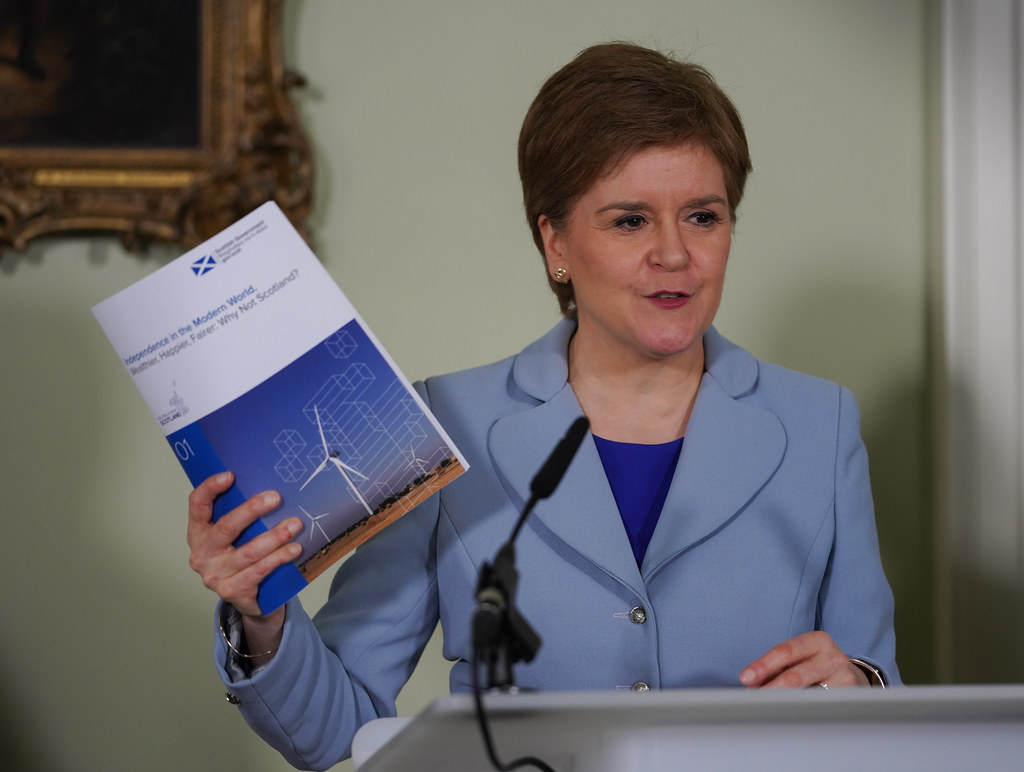The future is “inherently unpredictable,” First Minister Nicola Sturgeon told the gathered journalists at Bute House. So unpredictable is the future that the SNP have planned Scotland’s demise – or glory – in 100 pages worth of detail in “A Stronger Economy with Independence”.
Sturgeon stated in a news conference at Bute House, to introduce her government’s most recent position paper on Building a New Scotland, that the independence question is not a decision “between certainty on one side and uncertainty on the other hand”. Yet, behind this lofi logic of neither here nor there, lies the imperialist certainty of NATO and Nukes.
We are living in “crazy” times, according to Mairi Spowage, director of the Fraser of Allander Institute, where budget reviews, mini-Budgets, economic predictions, and administrative U-turns are so frequent that even economists struggle to keep up.
The Scottish Government’s paper, which was released on the same day that the new Chancellor Jeremy Hunt tore up the Truss administration’s financial plan and reversed nearly all tax measures announced in the growth plan three weeks earlier, covers a wide range of topics, including borders, currency trade, the labour market, and re-joing the EU. One of the biggest criticisms of the paper’s content is that it does so in broad strokes without sufficient detail – a nationalist specialty.
Critics claimed that neither the proposed switch from the British pound to the Scottish pound nor the desired re-entry to the EU had a timetable. It declares that the currency transfer would take place as soon as it is practical, that an increase in immigration would address the skills gap, and that a new oil fund would generate £20 billion in investment.
Speaking to media one year before her preferred indyref2 date, Sturgeon said the Scottish Government has published “infinitely more detail” than was made available prior to the Brexit referendum and is “intent on setting out as much detail as we possibly can”, with seven additional papers still to come.
According to Sturgeon, the cost-of-living crisis strengthens the case for independence rather than undermining it, and the problems brought on by the war in Ukraine shows that Scotland must be fully responsible for its energy and other markets. This is saying the quiet part out load, Scottish capitalists want to control their assets for no one’s benefit but their own.
In their fight for jobs, big industry tries to pit Welsh, Scottish, and English workers against one another. Collaboration between the three countries’ public sectors and a programme of wise procurement practices could help keep this under control or possibly eradicate it. If people demand that local and national governments work together instead of competing, we can create or own regulations now that we have left the EU.
The economic and political foundation of a new, socialism-based Britain is this form of cooperation.
Grant MacDonald, is a member of the YCL’s Edinburgh branch



